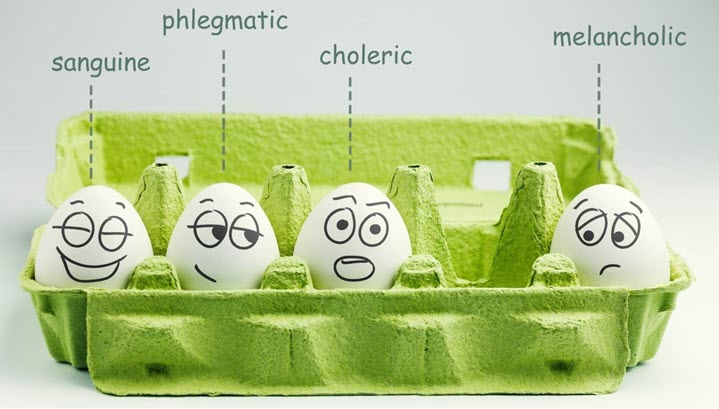
The Four Temperaments
Temperament and Personality are concepts used in psychology to discuss different ways of Feeling, Thinking, and Acting. But the similarity often confuses people about their meanings.
Personality
A person's Personality is defined as the collection of Emotions, Perceptions, and Actions that form a person's Behavioral Patterns.
It's the way you Feel, Think, and Act.
Your Personality is a group of processes that interact with each other, regulate themselves, and shape a dynamic system.
Many factors affect the person's Personality, such as Education, Socialization, and other various pressures and aspects in your life.
Your Personality, over time, remains stable even through different situations.
Temperament is Biological
Your Temperaments are the natural instinctive Traits of your Personality.
Temperament is biological and partly inherited from your genes.
Your Temperament is also partially determined by your brainstem that doesn't change throughout your life.
It is regarded as innate or inborn and is not learned. It is formed as an infant and never changes.
Temperament will determine how you will react to situations.
Your Temperament is part of your Personality that is physically part of you and always shows up first.
Your Temperaments are the fundamental Inherited Traits that, along with acquired Traits, form your Personality.
You will see yourself in all the Temperaments. Still, most people typically have a combination of Primary and Secondary Temperaments.
It is hard to modify, manipulate, or change your Temperament because it's genetic.
In some way or another, your inherited tendency will always be there.
But that doesn't mean you can't try to encourage or stop yourself from unhealthy Behavioral Patterns.
Sanguine
Sanguine is the most common Temperament Type.
It is typically either a Primary type or a Secondary type, although, of course, not everyone is confident.
This Temperament Type is as likely in men as in women.
Phlegmatic
Phlegmatic temperaments are typical but almost the opposite of sanguine temperaments.
However, it is possible to have a primary type of optimism and a secondary type of phlegmatic, or vice versa.